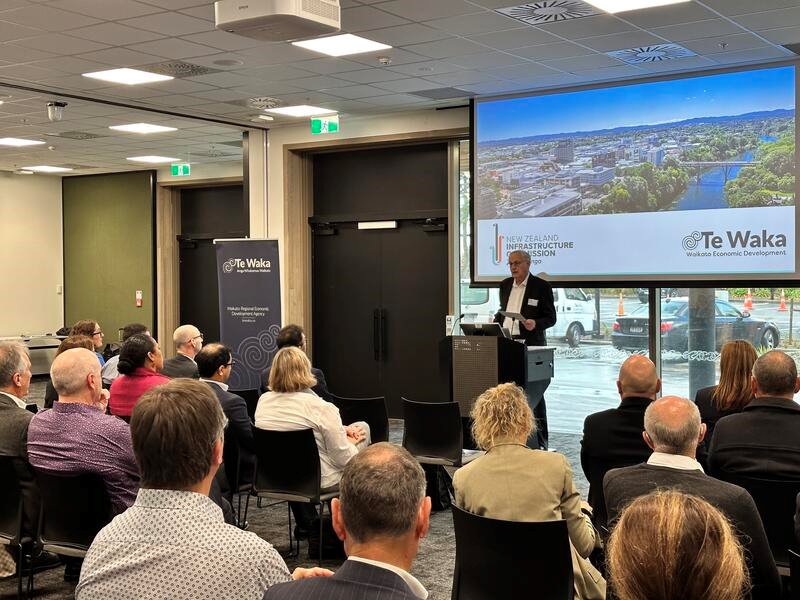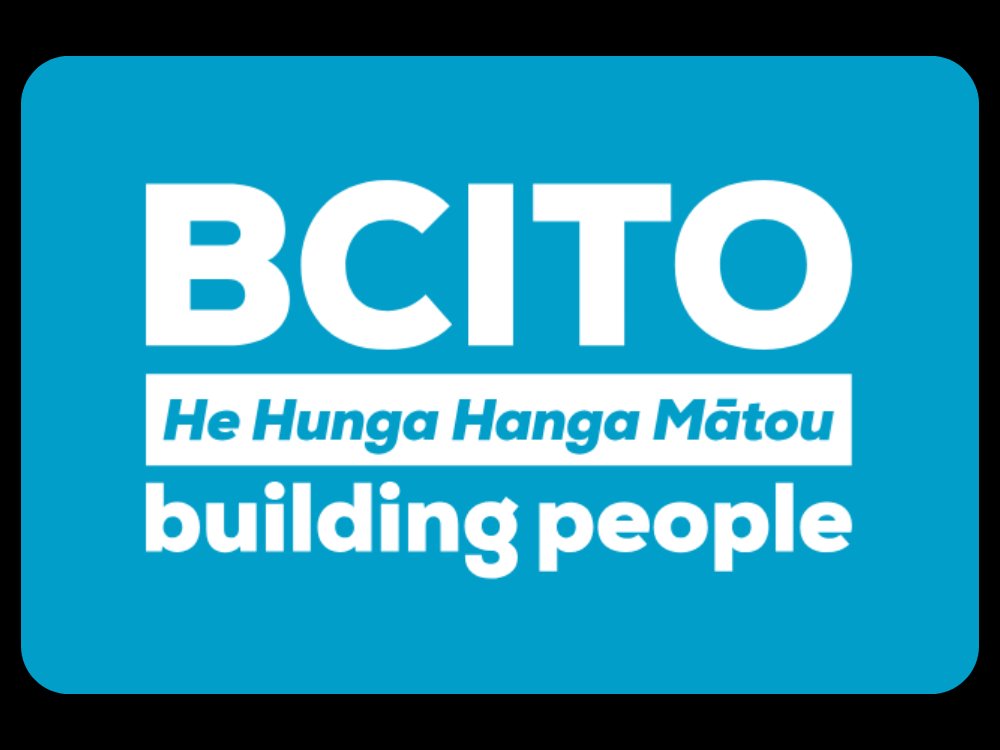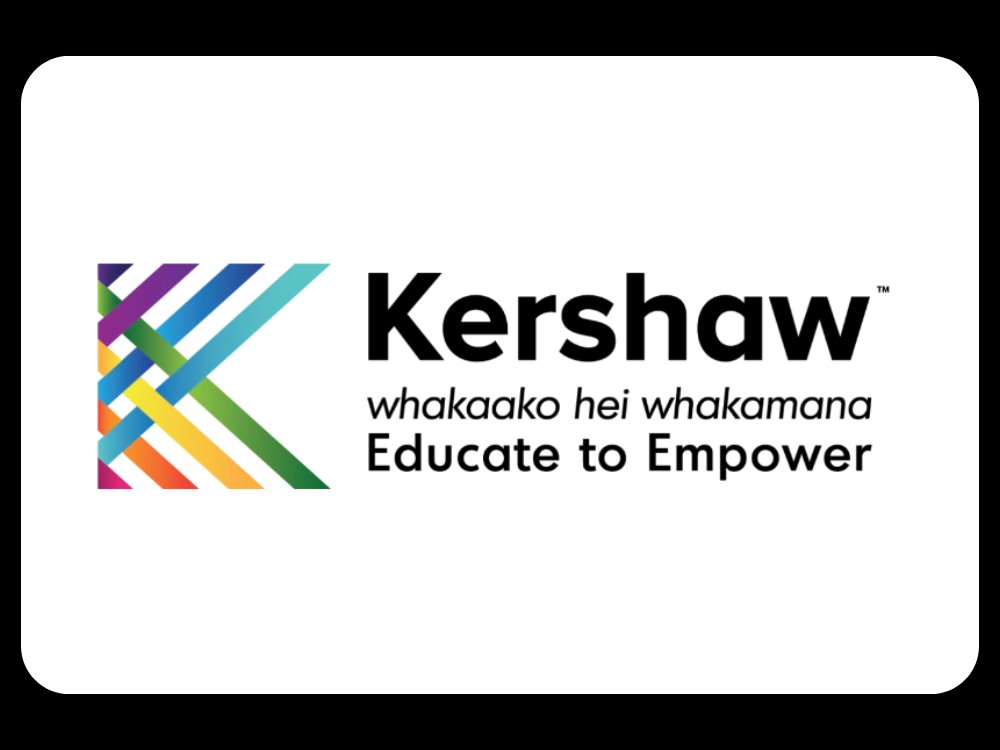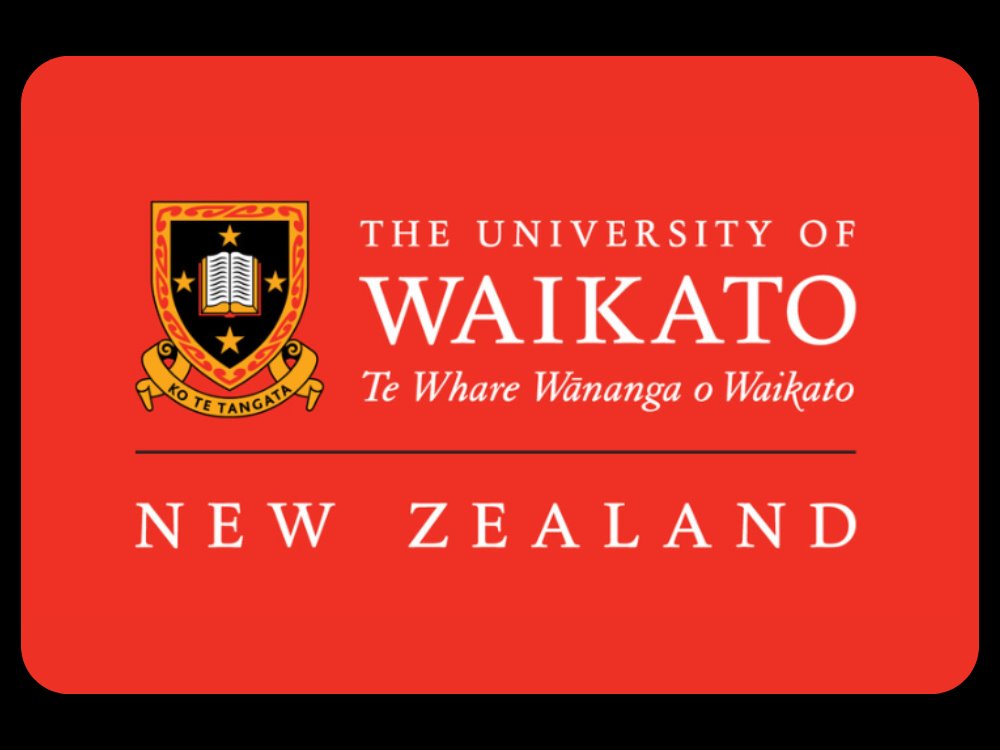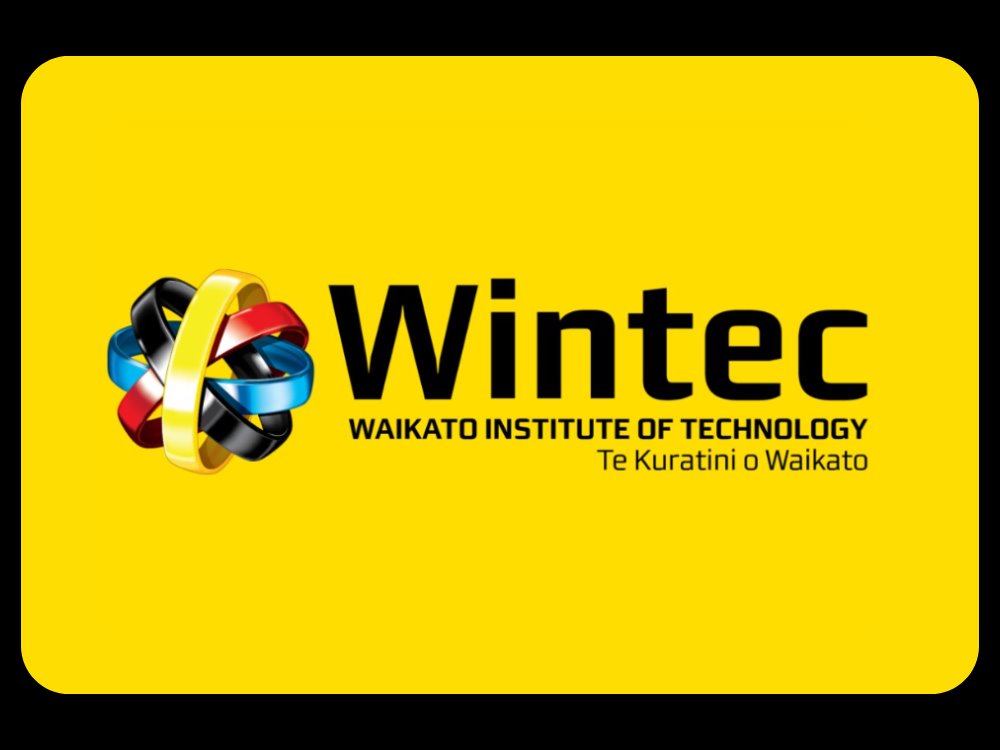Waikato’s strong population growth has fuelled high rates of construction around the region, from residential homes and developments to industrial and infrastructure projects.
Construction in the Waikato
More than 7,000 Waikato construction businesses employ over 30,000 people across the region. The sector is the third-largest employer in Waikato, and it’s forecast to be the third highest growth by industry from 2021-2026 (11.2%).
From 2023 onwards, over $21 billion of infrastructure investment (vertical and horizontal) is estimated to be carried out in the Waikato region. More information can be found on the Workforce Information Platform (WIP): a forecasting tool that displays national and regional gaps and surpluses within the construction and infrastructure labour market.
Waikato construction projects range broadly from residential homes and subdivisions to civic infrastructure, roading and industrial/commercial developments. A 2022 Te Waka survey found roading and affordable housing are seen as the two highest priority infrastructure requirements among business owners.
Trade businesses have the highest self-employment rate in Waikato at 24.4% (compared to a 17.5% regional average). With national skills shortages, there are good opportunities for sole traders to expand their workforces by taking on apprentices in order to help meet increased demand.
Why Waikato?
Statistics NZ expects Waikato will have the largest population growth of all New Zealand’s 16 regions between 2018-2048, with an average of 1% per year. More people require more housing, community infrastructure and services, which will fuel Waikato construction projects for years to come.
The region is already seeing signs of construction growth that is expected to continue. Building consents in September 2022 were 14% up on the year prior. Nearly 5,000 new dwellings were consented across Waikato in the year to September 2021, up 23% on the previous 12 months.
Development in recent years has helped to grow expertise within the region, as well as deliver on identified needs within the community. The Waikato Expressway, which opened in 2022 is one example of an infrastructure project with generational benefits that’s helped to make the region more accessible and connected.
Demand for construction expertise all over the Waikato region has arguably never been higher, and it’s expected this will only continue for the foreseeable future.
Te Waka and the Construction Sector
Trade skills are in demand all over Aotearoa New Zealand, and the Waikato construction sector is no different. Te Waka research found 67% of local business owners believe the construction industry needs more people - the equal highest alongside the health sector.
As demand for construction projects continues, more and more people will be employed within the sector. Te Waka is involved in the Waikato Regional Skills Leadership Group, which supports advocacy and initiatives to address skill shortages - including for the construction sector.
The insights from the Waikato Business Sentiment Survey play a crucial role in shaping our strategic focus and advocacy efforts and enable our team to understand and support business owners, employees and investors at sector and district levels.
Workforce & Training
Get in touch with the training providers below that offer specialised training for the Construction industry. Explore opportunities to upskill your staff and connect with students to build your talent pipeline.
Local Training Providers
Sector Initiatives
Waihanga Ara Rau Workforce Development Council, develops and maintains qualifications, unit standards and micro-credentials for the construction and infrastructure industries.
Gateway programmes are for secondary school students who want to explore job options while studying towards NCEA. They facilitate work-based learning opportunities for students, offering a vocational education pathway by providing hands-on experience in a real-world setting.
- Smart Waikato partners with local businesses to deliver a range of practical and innovative initiatives that support rangatahi transitioning from education to employment.
ConCOVE supports innovation and excellence in vocational education. They do this by strengthening links with industry and communities.
Further Resources
Related content
-
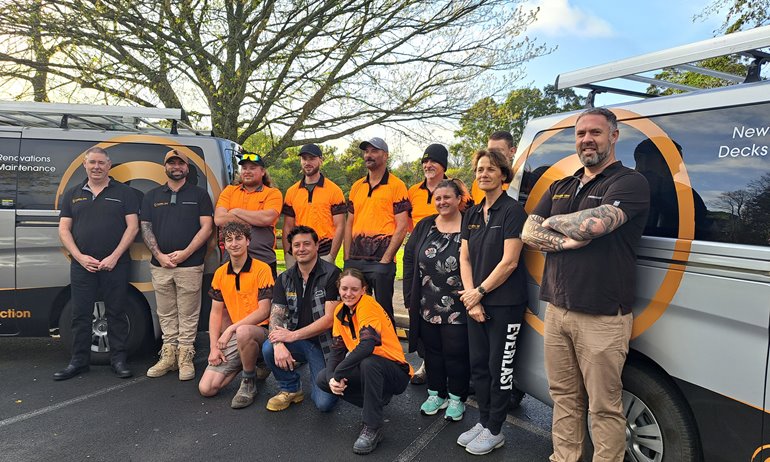
Better together – Gr8 Job Hauraki’s nailing it!
When business owner Rob Mapu of Centre Line Construction, considers what helped him to grow his new business with confidence, he said it was the trust that he had in Gr8 Job Hauraki’s recruitment programme that nailed it.
-
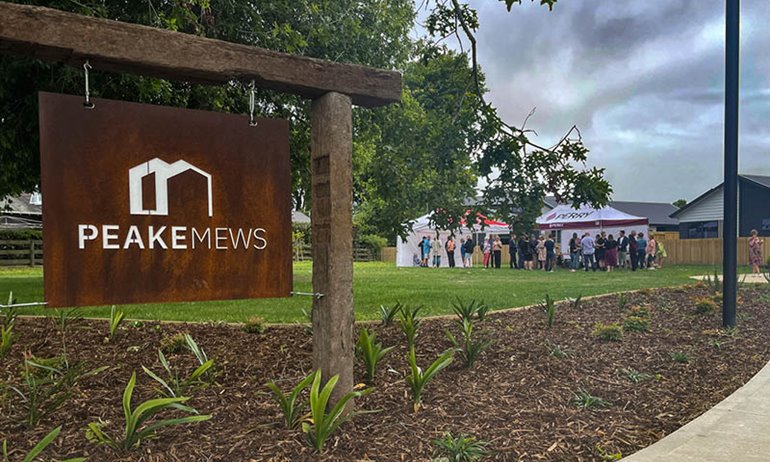
Perry Trust donates $4m for Affordable Housing in Waipa
Thanks largely to a $4m donation from the Brian Perry Charitable Trust, Bridge Housing has opened Peake Mews, its first affordable housing neighbourhood in Cambridge.
-

Transport infrastructure consultation: giving the Waikato a voice
Te Waka is set to submit on the Draft 2024 Transport Government Policy Statement (GPS) which sets out the Government’s transport priorities and guides investment in our transport infrastructure.
-
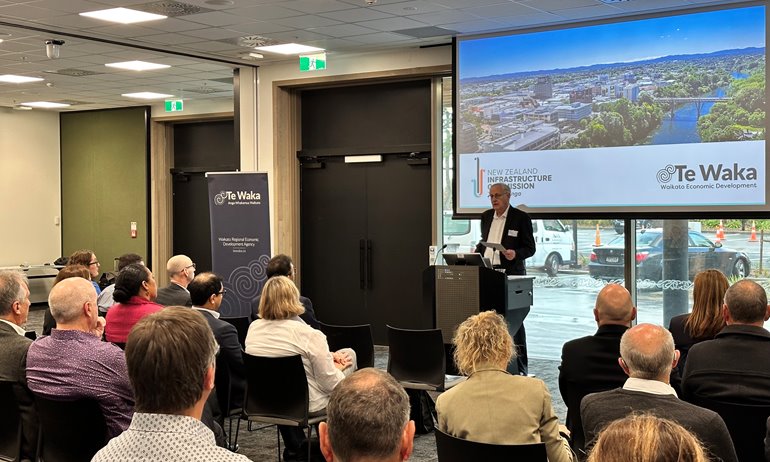
Rising to the Regional Growth Challenge
Te Waka recently hosted the Infrastructure Commission to discuss how the Waikato, and Aotearoa at large, can rise to the regional growth challenge. The Waikato is growing. Opportunities are knocking at our door and we need to position ourselves to capitalise on these when they appear. For General Manager Economic Development Rosie Spragg, the visit from the Infrastructure Commission reinforced the fact that we are at a crucial turning point for the future of our region and its ongoing growth.
No events found.


